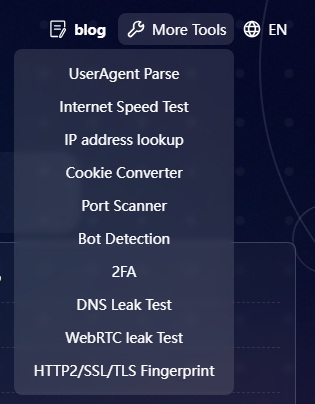How to Use BrowserScan to Verify Your Browser Fingerprint
What is BrowserScan?
BrowserScan is an advanced tool that analyzes your browser's fingerprints to give you a fingerprint authenticity score. This score is pivotal as a figure below 90% flags potential privacy risks, indicating you may be divulging traces that could be exploited to track your online movements or link your multiple accounts, leading to possible account suspensions.
Overview
The initial scan by BrowserScan provides a comprehensive overview, listing key elements of your browser's profile:
●Browser Type & Version
●Operating System
●Language
●IP Address
●Time zone
●Postal code
●Country & Geolocation
●Internet Service Provider
●Blacklist
●DNS Leaks and Bot Detection
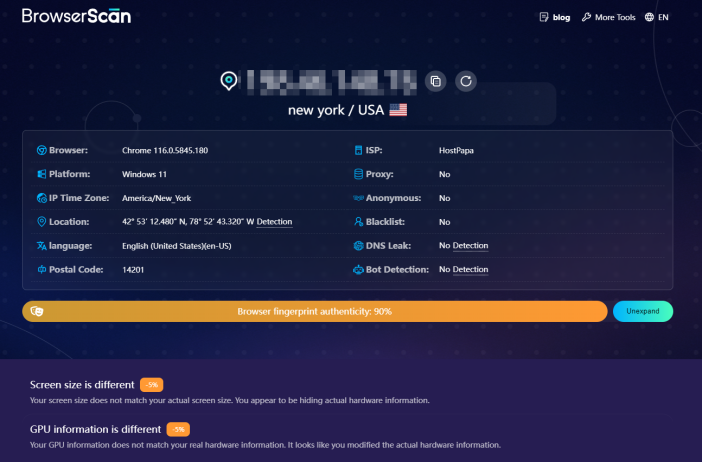
Hardware
The hardware section of BrowserScan offers an in-depth look at your device, which is essential for maintaining online anonymity. It can reveal the architecture of your device, whether Canvas and WebGL fingerprints, the number of CPU cores, and even detailed graphics card information. This section is especially important when using anti-detect browsers, as it helps to ensure that your simulated device profile is consistent and believable.
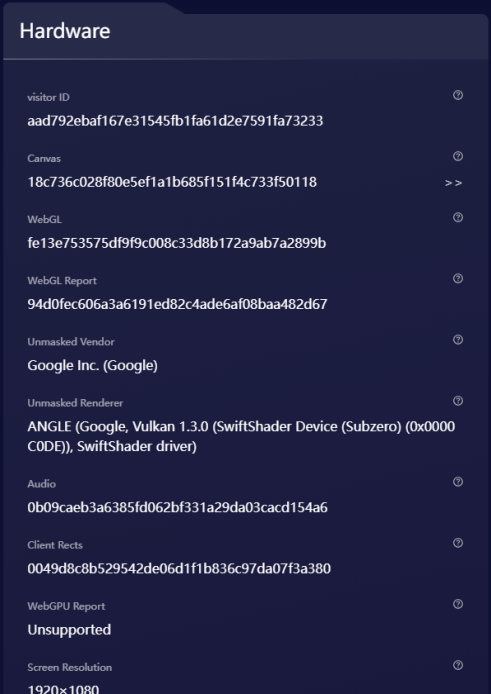
Software
In the section, BrowserScan examines the alignment between your IP address's timezone and your browser's settings. It also captures the current time from JavaScript, checks whether you have enabled the 'Do Not Track' feature, and reviews your cookie settings. These software details are crucial for creating a coherent online persona, especially when managing multiple accounts to prevent detection and potential account restrictions.
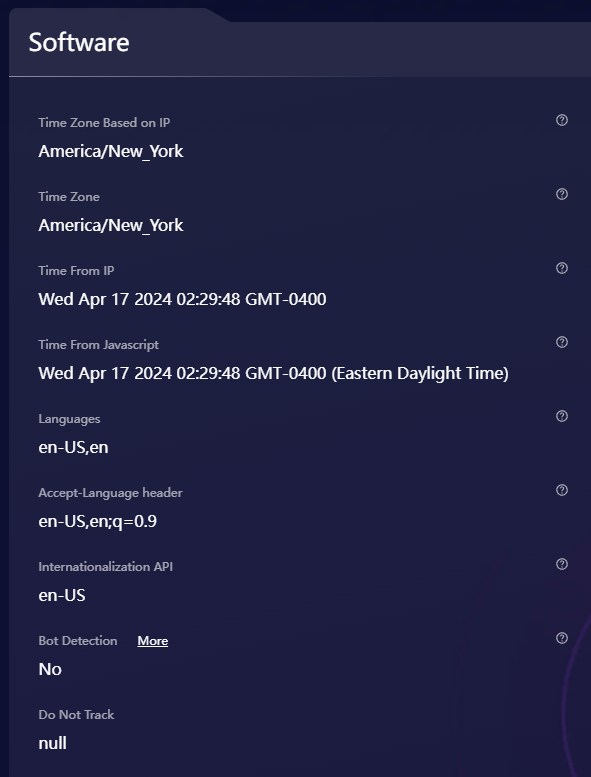
WebRTC and DNS Leaks
WebRTC is a technology that enables real-time communication directly in web browsers. While it provides useful capabilities, it also poses a risk of WebRTC leaks, which may expose your actual IP address regardless of using a proxy or VPN. BrowserScan specifically checks for these WebRTC leaks to confirm that your true location remains concealed, maintaining the anonymity required for your diverse online engagements.
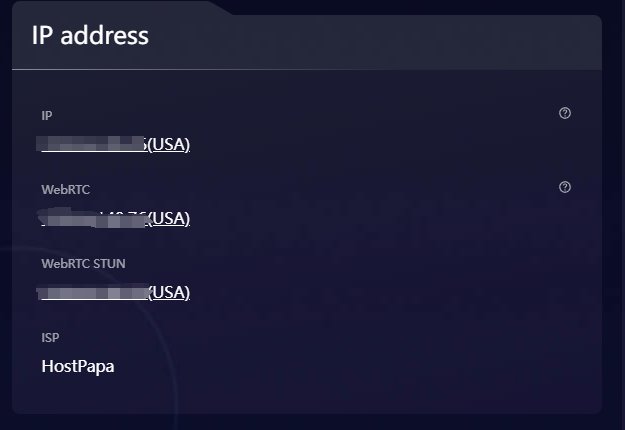
DNS leaks are another common issue that BrowserScan addresses. These leaks occur when your device sends queries to your actual ISP's DNS server instead of the DNS provided by your proxy or VPN. This can inadvertently reveal your true location to websites, which is a significant privacy concern. BrowserScan checks for these leaks to ensure that your online presence remains secure and private.
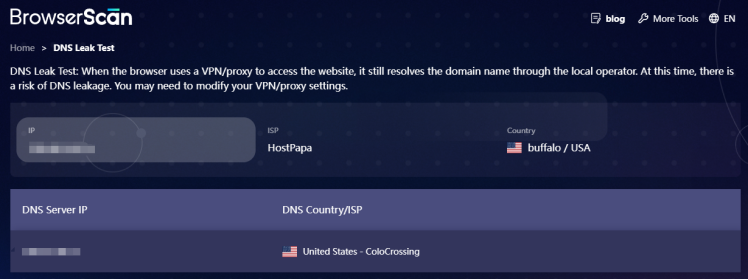
More Tools
Beyond the basics, BrowserScan offers a suite of tools to bolster your online security:
●Port Scanner helps identify open ports on your device that could be exploited by hackers.
●IP Address Lookup provides extensive details about any IP, including its physical location and the browser in use.
●2FA Authenticator strengthens your login processes by generating or verifying security codes.
●Cookie Convertor tool assesses cookie legitimacy and converts them into a usable format.
●Internet Speed Test checks your connection without the need for additional plugins.
●UserAgent Parse decodes the information within your user agent string, seeing the details of your device and browser setup.
